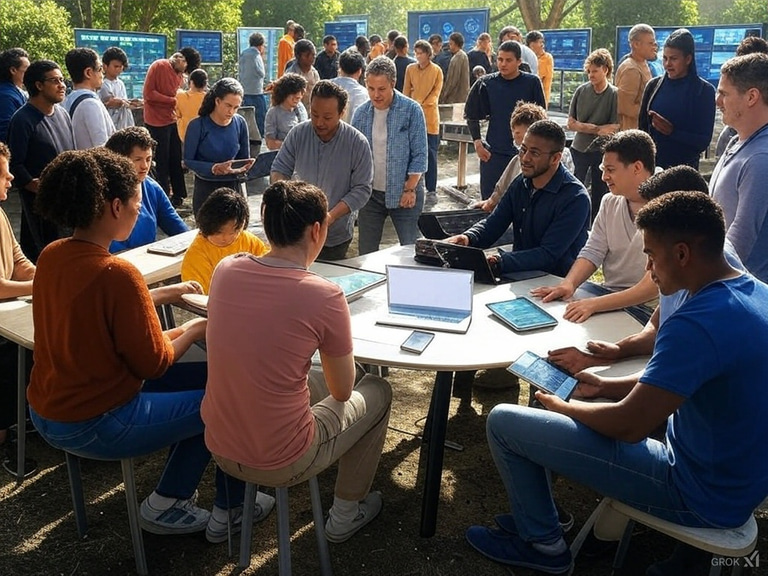Decentralization Efforts Beyond DCOs
In addition to forming a DCO, here are practical steps to decentralize power, resources, and resilience in your community—start now!
Build Local Mutual Aid Networks: Share resources like food or tools directly with neighbors—create a Telegram group (e.g., “FTJ My Community Neighborhood Swap”) to coordinate swaps and support.
Learn and Teach Practical Skills: Master gardening, first aid, or repairs via online guides—share tutorials in a Telegram channel and host local skill-sharing meetups.
Establish Alternative Communication Channels: Set up CB radios or walkie-talkies as backups—use a Telegram group to plan a “radio network” (e.g., “FTJ My Community Channel 5 at 8 PM”).
Secure Local Food Systems: Grow or stockpile food independently—connect with farmers or share seeds via Telegram posts to build local supply resilience.
Create Decentralized Energy Solutions: Invest in solar panels or generators—share DIY power tips in Telegram groups to reduce grid dependence.
Form Barter and Trade Systems: Trade goods and services without cash—start a Telegram “Barter Network” group to list offers (e.g., “Fix bikes for eggs”).
Strengthen Physical Community Spaces: Secure safe hubs for meeting or storage—map locations on Telegram and stock them with essentials.
Document and Share Critical Information: Save key resources (e.g., maps, manuals) offline—download now and share via Telegram, then print backups.
Practice Self-Defense and Security: Learn self-defense from online videos—form a Telegram neighborhood watch group to coordinate protection efforts.
Decentralization efforts Beyond DCO's
Organize Community Healthcare and First Aid
Encourage people to use Telegram to connect medical professionals, share health advice, and coordinate donations of medical supplies like bandages or over-the-counter medications. Push for in-person first aid training sessions so communities can respond to emergencies without external help.Example: Set up a Telegram group called “Health Support Team” to share tips and organize supply drives.
Prepare for Communication Blackouts
While the internet still works, urge people to use Telegram to plan backup communication systems—such as agreeing on radio frequencies or walkie-talkie channels and setting daily check-in times. Tell them to download and print essential guides (e.g., medical manuals, repair instructions) now and share these files via Telegram for others to save too.Example: Post in your group, “Radio plan: Channel 5 at 8 PM daily—download this first aid guide now.”
Foster Mental Health and Morale
Advise creating a Telegram support group where people can share coping strategies, offer encouragement, or plan small, safe social gatherings—like outdoor meetups or skill-sharing circles. Emphasize that keeping spirits high is vital for resilience as challenges grow.Example: Start a Telegram channel like “Community Care” for daily check-ins and morale boosts.
Document Everything for Accountability
Stress the importance of records of decisions, resource allocations, and key contacts to ensure transparency and continuity Encourage everyone to maintain personal logs too.Example: Share a simple template in your Telegram group for logging decisions and resources.
Empowering individuals through decentralized technologies and activism.
971-208-5360
701 Carr Blvd
Gabriola, BC. V0R 1X3
decentralize@ftjp.org
